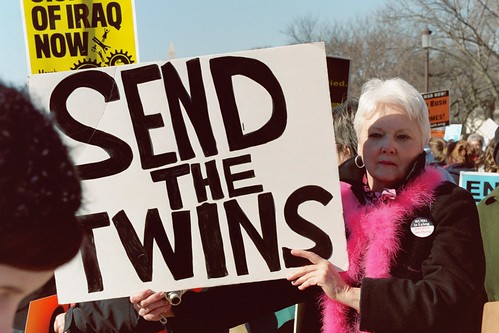
The summer after I graduated from college I took a job stocking shelves at our local supermarket. For the most part i enjoyed the activity of the job and the atmosphere of the store, however, I also felt shame for working there. I felt that as a college graduate and the daughter of middle class parents I should be beyond such low-skilled labor. My interactions with my friends at the store and friends of my parents exacerbated this sense of shame. The first few days I would say hello to anyone I knew or recognized. The responses I got were looks of surprise, mild disgust, and sometimes silence. I soon realized it was easier for me to try to hide from those I knew, or pretend that I was very busy than greet them. They seemed to have no problem "not seeing me" or ignoring me if they did see me. I got the message loud and clear that there was something wrong with me working there and that shelf stockers in stores are and should be invisible.
Several months ago I started another "working class" job. This time I am delivering trays at a hospital. I wear a uniform that consists of some not very flattering pants, a polo shirt that is too big, an apron and a hairnet. I almost always have on bright blue gloves, and I might have more education than any of my supervisors. My co-workers are all high school students, one of whom is in my class. I was surprised when I started this job to feel the distant but familiar pang of shame that I had felt at the super-market.
Especially with the super-market situation I am painfully aware of how invisible the workers are. Sometimes they are not seen, other times they are discounted. People rarely regard cashiers as community leaders, or persons of status. The other day I was volunteering in our local co-op, stocking the shelves and my mentor teacher walked right past me without even seeing me. When I stopped her and said hi, she said she hadn't seen anyone at all. This invisibility is bad enough, but it goes far beyond that. How do we react when someone tells us they are a fast food worker, or a custodian? What about kids at school whose parents hold these jobs? do they ever learn about heroic acts of people like their parents in text books? Does anyone ever want to be what their parents are? How do these prejudices impact who gets to make decisions in our society and who doesn't? How well do we hear what a cashier says to us once we have found out the price? It is time we start dismantling these class hierarchies in our heads, and start to value work, and more importantly human beings. I have a long way to go on this, and as a teacher the urgency is great. Take some time, mull if over, share your thoughts. There will be more on this later... we need to go a few levels deeper, just wanted to get a start...







